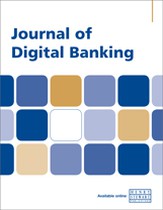Share these talks and lectures with your colleagues
Invite colleaguesUnmet payment needs and a central bank digital currency
Abstract
This paper analyses the payment habits of Canadians both in the current payment environment and in a hypothetical cashless environment. The paper also considers whether a central bank digital currency (CBDC) would address unmet payment needs in a cashless society. Most adult Canadians do not experience gaps in their access to a range of payment methods, and this would probably continue to be the case in a cashless environment. Some people could, however, face difficulties making payments if merchants no longer generally accepted cash as a method of payment. For a payment-oriented CBDC to successfully address unmet payment needs, the main consumer groups — who already have access to a range of payment options — would have to widely adopt the CBDC and use it at scale. This is necessary to encourage widespread merchant acceptance of CBDC, which would, in turn, encourage further consumer adoption and use. Most consumers, however, face few payment gaps or frictions and therefore might have relatively weak incentives to adopt and — especially — to use CBDC at scale. If that were the case, widespread merchant acceptance would also be unlikely. This suggests that addressing unmet payment needs for a minority of consumers by issuing a CBDC could be challenging under the conditions explored in this paper. The minority of consumers with unmet payment needs will only be able to benefit from a CBDC if the majority of consumers experience material benefits and therefore drive its use. Adoption by the majority may have added policy implications that are beyond the scope of this paper.
The full article is available to subscribers to the journal.
Author's Biography
Christopher S. Henry Christopher Henry is Senior Economist at the Bank of Canada. He serves as lead economist for the consumer survey research programme on the Currency Department’s Economic Research and Analysis team. Chris first joined the Bank as a research assistant in 2012 and recently rejoined in 2021 after completing his PhD in economics. In his role, Chris contributes to the design, implementation and analysis of a range of surveys that measure the use of cash and alternative methods of payment. He holds a PhD in economics from Université Clermont Auvergne (France) and an MSc in mathematics from McMaster University.
Walter Engert is Senior Policy Advisor in the Currency Department of the Bank of Canada, where he works on payments, central bank digital currency and related policy questions. From 2009 to 2017, he was a senior official in the Office of the Superintendent of Financial Institutions (OSFI, Canadian bank and insurance regulator), where he played a leading role in stress testing the Canadian financial system, enhancing capital standards for major banks and developing the Canadian bail-in resolution framework. Prior to joining OSFI in 2009, Walter worked at the Bank of Canada for over 20 years in increasingly senior positions and was responsible for oversight of crucial payment infrastructures, development of financial-sector policy advice, lender-of-last resort policy and monetary policy advice. Walter is also a former adviser at the IMF Executive Board and member of international committees on prudential bank regulation and payments and market infrastructures. He has a bachelor of commerce (finance) and master of arts (economics) degrees from McMaster University.
Alexandra Sutton-Lalani is Senior Analyst at the Bank of Canada. Her current focus is on central bank digital currency and FinTech research. Since she joined the Bank of Canada in 2013, she has occupied a variety of roles in subject areas such as communications, retail debt and currency. Alexandra holds a bachelor of social sciences, a bachelor of arts and a master of arts from the University of Ottawa.
Sebastian Hernandez is Senior User Experience Specialist in the FinTech Research Department at the Bank of Canada. His research interests include design, accessibility and usability of digital currency and payments. Prior to joining the Bank he worked in the aerospace and defence field as a Human Factors Specialist and User Experience Architect on various projects, including the Canadian Maritime Helicopter Project. Sebastian holds an MSc in applied ergonomics and human factors from the University of Nottingham and a BASc in systems design engineering from the University of Waterloo.
Darcey Mcvanel is Lead, Central Bank Digital Currency (CBDC) Policy Integration at the Bank of Canada. In this role, she leads a team responsible for synthesising research and analysis from across the organisation to form practical strategy and policy recommendations to guide the Bank’s CBDC contingency planning. She has extensive experience in the areas of financial market infrastructures, financial institutions and financial markets. Darcey obtained her master’s in economics from Queen’s University.
Kim P. Huynh is the Director of the Economic Research and Analysis team in the Currency Department. His research interests include industrial economics and applied econometrics.
